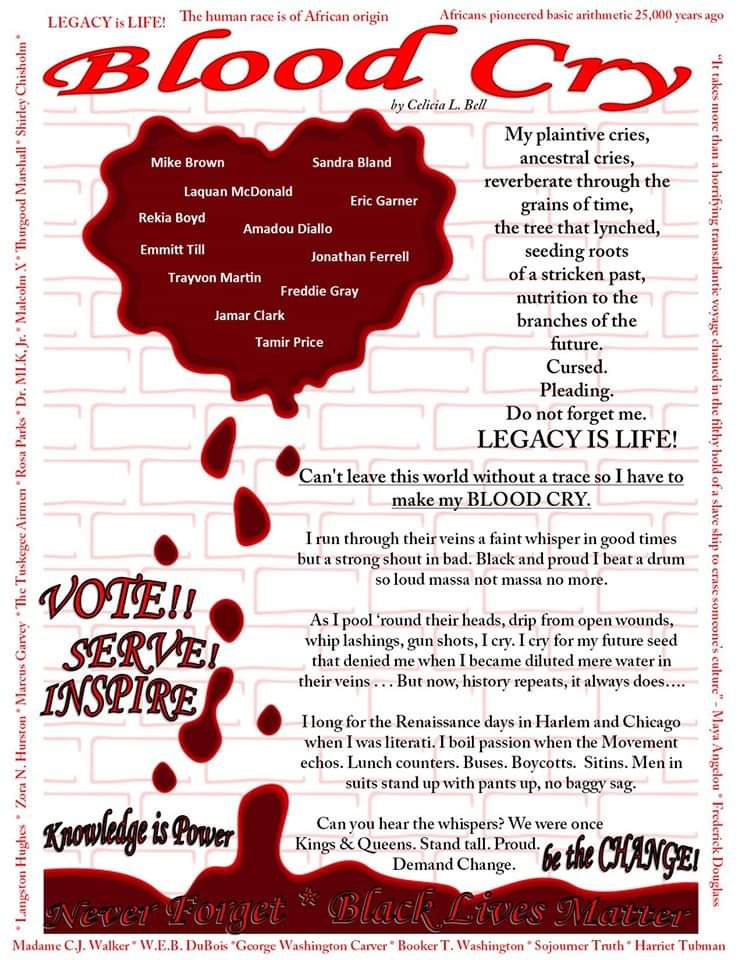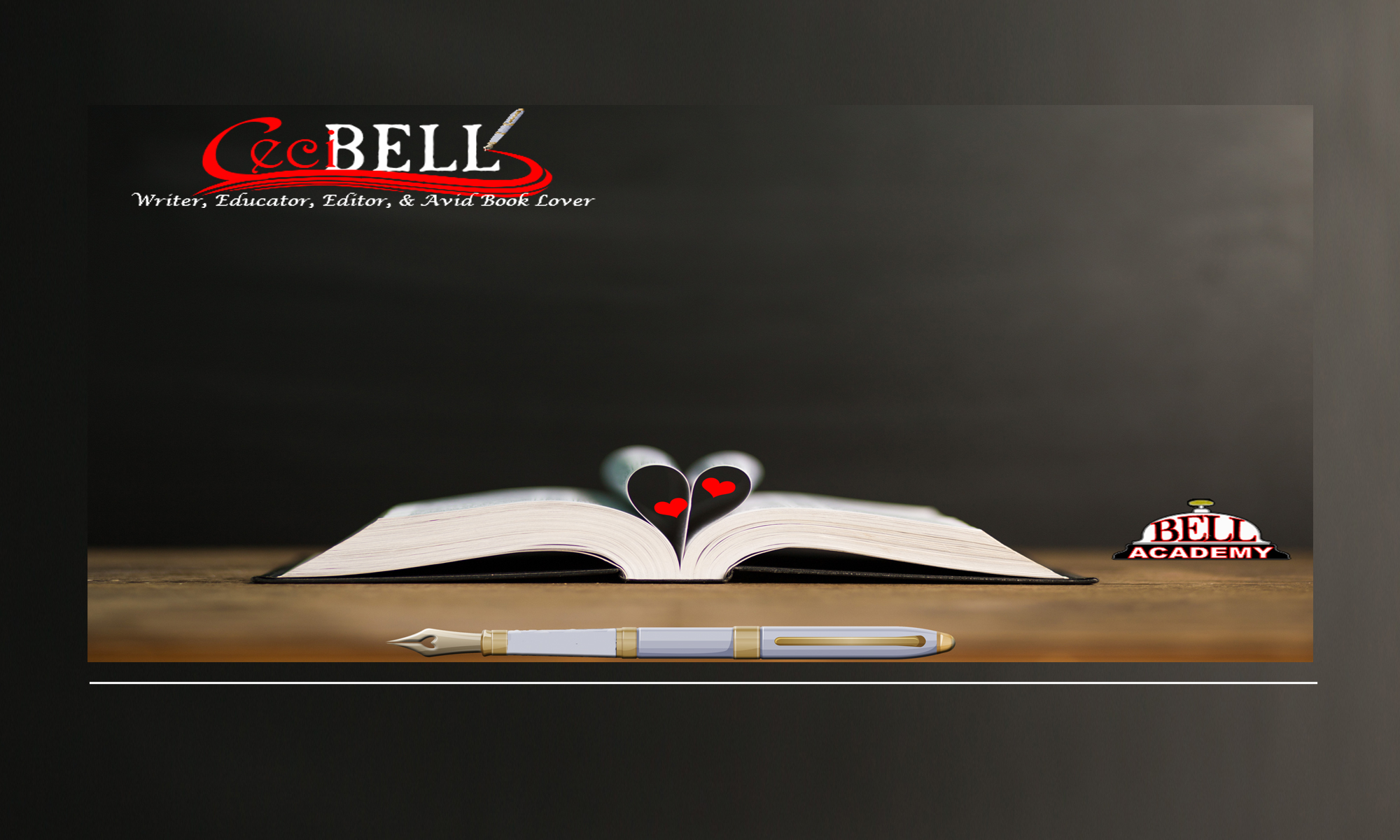
Blood Cry – created after the Freddie Gray Mistrial


Writer, Educator, Editor, & Avid Book Lover

Newsflash Justice Scalia: All black students are not slow and belong on the “slow track.” The “separate but equal” ideology of the past, which was outlawed in 1954 by the very U.S. Supreme Court you work for, does not belong in the 21st Century. America is supposed to be a melting pot of different cultures…
Rough draft – in progress “You ain’t no lady, Eula Mae,” said my first and only love Levi, when I told him I was marrying Jimmie Lee the day after tomorrow at the courthouse. I scoffed and snuggled closer to Levi, tracing my finger nails along the lapel of his coat. “I’m tired of…
I am trying to work through my feelings, interpretations ,and perspectives on brothas and sistas with the New Black idealogy. Michael Arceneaux wrote a piece today called “Don Lemon, Stacey Dash and Raven-Symone, on The View? Can We Stop Rewarding Simple Black Celebrities.” It is so spot on. Seems like a set up and more…
rough draft – in progress I always had fried chicken, mac and cheese, and sweet potato pie at the end of my rainbows especially when they were broken. When little Mike down the street pushed me off the swing….. Letting go of broken promises is so hard especially when purple powers your mood….
#TweetingWhileBlack. What is that? Smokey Fontaine published Newsone.com infographic on the topic in 2011 because the phenomenon of “Black Twitter” was all the rage in the media. He gave a play by play that started in 2007 when Dana Boyd, a Berkeley researcher, noticed the racial and socioeconomic divide in social networks such as Facebook and Myspace. In 2009 a blogger tweeted because White Americans Twitter users were in an uproar like “OMG! Black People,” because African Americans were dominating and determining the trending topics and hashtags in Twitter. Pew Research Center conducted the first study of African Americans’ “over-indexing” in Twitter and reported that “26 percent of Black Americans online use Twitter, versus 19 percent of White Americans.” Fontaine details a thorough history of how the term “Black Twitter” was coined and the ever increasing gawker mentality of mainstream media’s fascination with African Americans’ Twitter use.
When Twitter began curating trending topic in 2011, which became obvious when Troy Davis hashtags disappeared from trending topics and Black Twitter noticed the “censorship” and called Twitter out on it –Black Twitter’s first use of its collective voice to act on a grievance and get results happened and it’s been on ever since. Black Twitter has repeatedly acted on its clout to shut down situations detrimental to the African American. Remember the Paula Deen fiasco? Shani O. Hilton writes about how Black Twitter “began making jokes at Paula Deen’s expense in order to keep from crying—but ultimately drove the narrative around her and sped her demise.” How about when BlackTwitter “killed” the George Zimmerman trial juror’s book deal mere hours after the book deal was announced (Hilton)? #BlackLivesMatter.
Black Twitter is giving a voice to the voiceless, often marginalized segment of the U.S. population. Wouldn’t it be great if that cultural influence could be used and applied to programs and activities that positively affect the African American community? How can Black Twitter be used as an educational and awareness tool to promote positive…
My question is how can Black Twitter leverage its own power to positively impact the African American community? If the various segments of the African American community took a proactive approach to promoting their organizational goals, purposes, and activities on social media, in particular, Black Twitter, could the African American community positively influence their community…
Knowledge is power. The ability to communicate through the written word is power because the writer has the ability to persuade the reader’s thinking, beliefs, and attitudes. There seems to be wider array of literary choices for White Americans, whether socially disadvantaged or not (poor or rich)—there is a book tailored to that audience, including…
When cultural communities don’t encourage or promote diversity within one’s own culture, socio-political critics as well as the average, everyday citizen views a culture through a one size fits all. Diversity within a culture needs to be shared outside that particular culture to give other cultures a “bird’s eye” view, with the goal of promoting…
Related Blog Post:
Reading “What Was African American Literature?” by Kenneth Warren – Ceci Bell